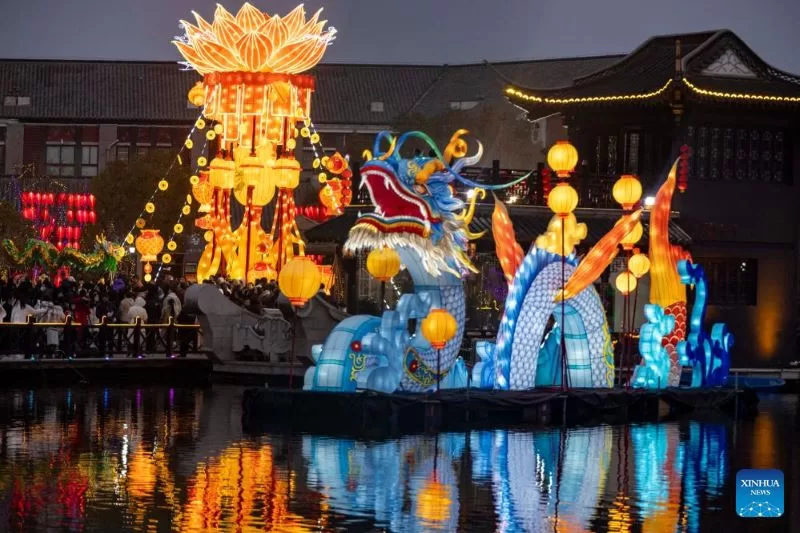
The inclusion of China’s Spring Festival in UNESCO’s Representative List of the Intangible Cultural Heritage of Humanity is not just a win for China but a testament to the enduring power of cultural traditions in fostering universal values.
This recognition underscores the significance of heritage in connecting past, present, and future, while also serving as a bridge between cultures worldwide.
A Celebration Beyond Borders
The Spring Festival, long cherished as China’s most significant traditional holiday, is far more than a calendar event. It is a dynamic celebration of family, community, and renewal. The UNESCO inscription honors the festival’s vibrant rituals, from prayers for prosperity to joyous family reunions and communal festivities. These practices transcend regional boundaries and resonate with shared human aspirations for hope, togetherness, and peace.
The festival’s recognition on a global platform shines a light on its profound cultural contributions. Beyond the fireworks and feasts, it encapsulates a philosophy deeply rooted in harmony—between humans and nature, among families, and across communities. This harmony, as UNESCO highlighted, is a crucial component of sustainable development, touching on areas like food security, environmental awareness, and education.
A Model for Intangible Cultural Heritage
What makes the Spring Festival particularly noteworthy is its ability to blend ancient traditions with modern life. Passed down informally within families and taught formally in educational systems, the festival sustains traditional craftsmanship and artistic skills. It exemplifies how cultural heritage can adapt and thrive in contemporary societies while maintaining its core values.
China’s successful nomination of the Spring Festival also demonstrates the country’s commitment to preserving and promoting intangible cultural heritage. With 44 cultural elements now recognized by UNESCO, China continues to lead global efforts in safeguarding traditions, not only for its own people but as part of a broader mission to enrich humanity’s shared cultural tapestry.
Universal Values in a Globalized World
Perhaps most compelling is the Spring Festival’s relevance to today’s global challenges. In an era marked by division and environmental concerns, the festival’s values—family unity, respect for nature, and hope for a better future—carry universal appeal. As China’s vice minister of Culture and Tourism, Rao Quan, aptly noted, this recognition amplifies the message of peace and harmony, crucial to building a more sustainable and inclusive world.
Moreover, the festival fosters cross-cultural understanding. Increasingly celebrated in diasporic communities and embraced by people worldwide, it serves as a vehicle for global cultural exchange. Its recognition by UNESCO further solidifies its role as a universal celebration, one that transcends borders and reminds us of our shared humanity.
The Way Forward
The inscription of the Spring Festival is not the end but a new beginning. It offers an opportunity to explore how cultural heritage can play a role in addressing global issues. Governments, cultural organizations, and individuals can take inspiration from the festival’s enduring vitality to preserve other traditions at risk of disappearing.

The Spring Festival’s inclusion is a call to cherish and protect the intangible treasures that make us who we are, ensuring that their light continues to illuminate generations to come.



Выездная химчистка в жемчужине России и ЛО! Мягкая мебель, ворсистые покрытия, удобные сиденья – возродим красоту и аромат свежести прямо у вас дома! Звоните! Нажимайте https://himchistka-spb24.ru